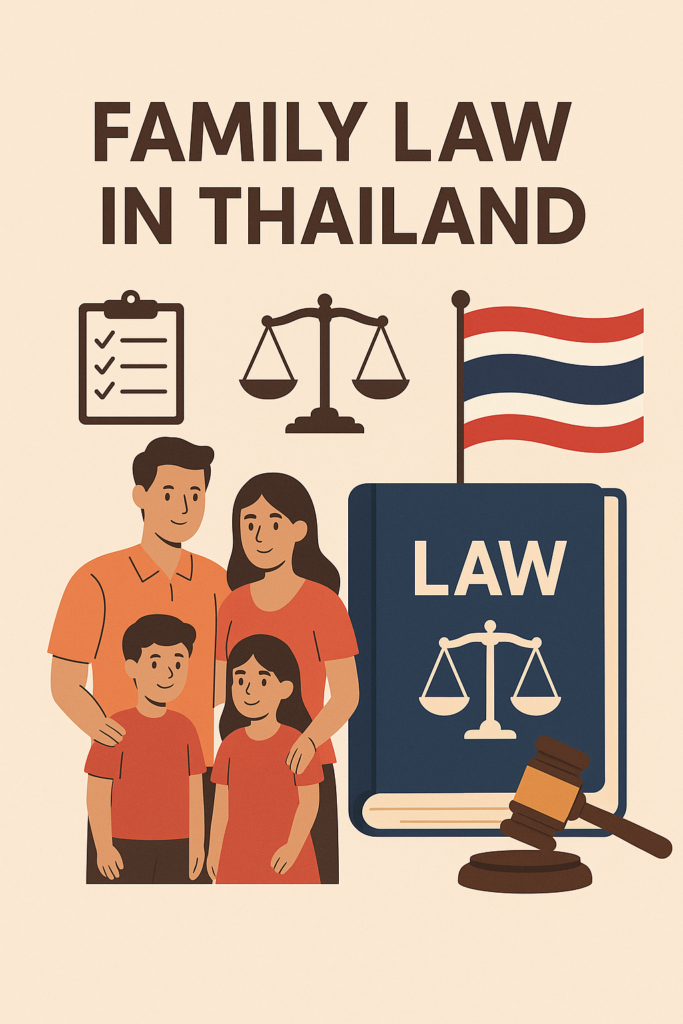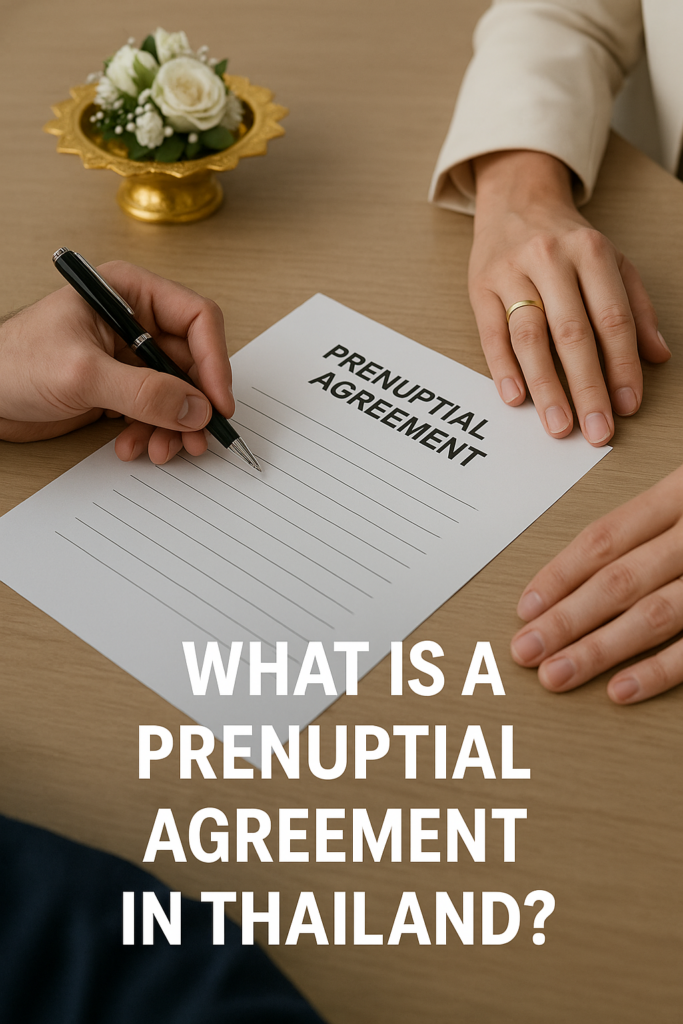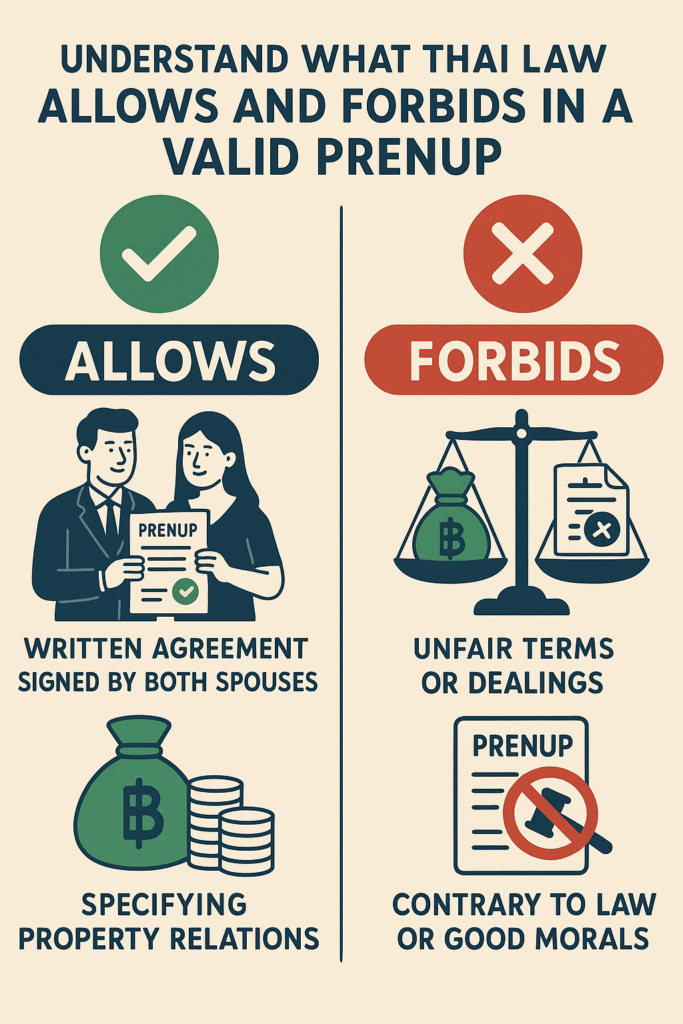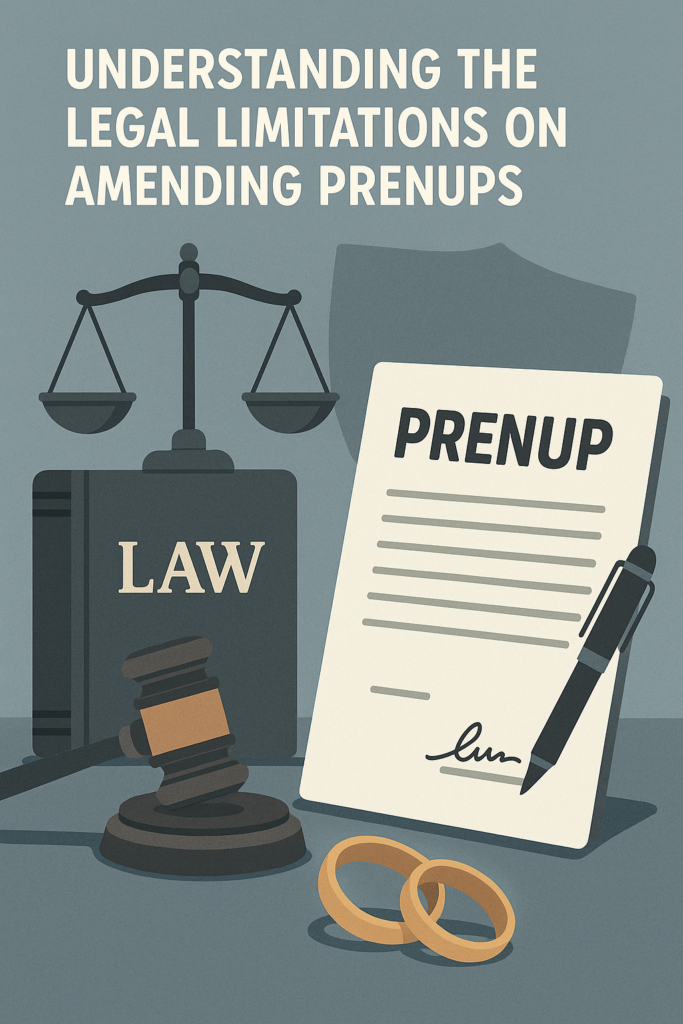Are you planning
to marry in Thailand?
Prenuptial Agreement Thailand, a Smart Step Before Saying “I Do”
Are you planning to marry in Thailand?
Before signing that marriage certificate, take a moment to think about your future. Because while love may bring you together, clear legal planning will protect you both especially when things don’t go as planned.
This guide is written by Thai family law professionals who regularly work with both Thai and foreign clients. It aims to give you the real picture of how a prenuptial agreement works in Thailand with the law, real-life experience, and practical advice you won’t find elsewhere.
Why You Should Consider a Prenuptial Agreement
Let’s face it, few people think about separation or divorce when they’re deeply in love.
But in our years of handling divorce cases, we often hear the same regretful words from clients:
“I wish I had signed a prenup before I got married.”
At the time, they were in the honeymoon phase, full of trust and optimism. Love made them blind.
They never imagined the possibility of disagreement or separation.
But when a marriage breaks down, emotions run high, and even simple property matters can turn into lengthy, expensive disputes.
A Prenuptial Agreement is not a lack of trust. It’s a reflection of mutual respect, foresight, protection and shared responsibility.
It allows both parties to define clear terms for managing finances, assets, and debts (relative with property) avoiding conflict in the future.












